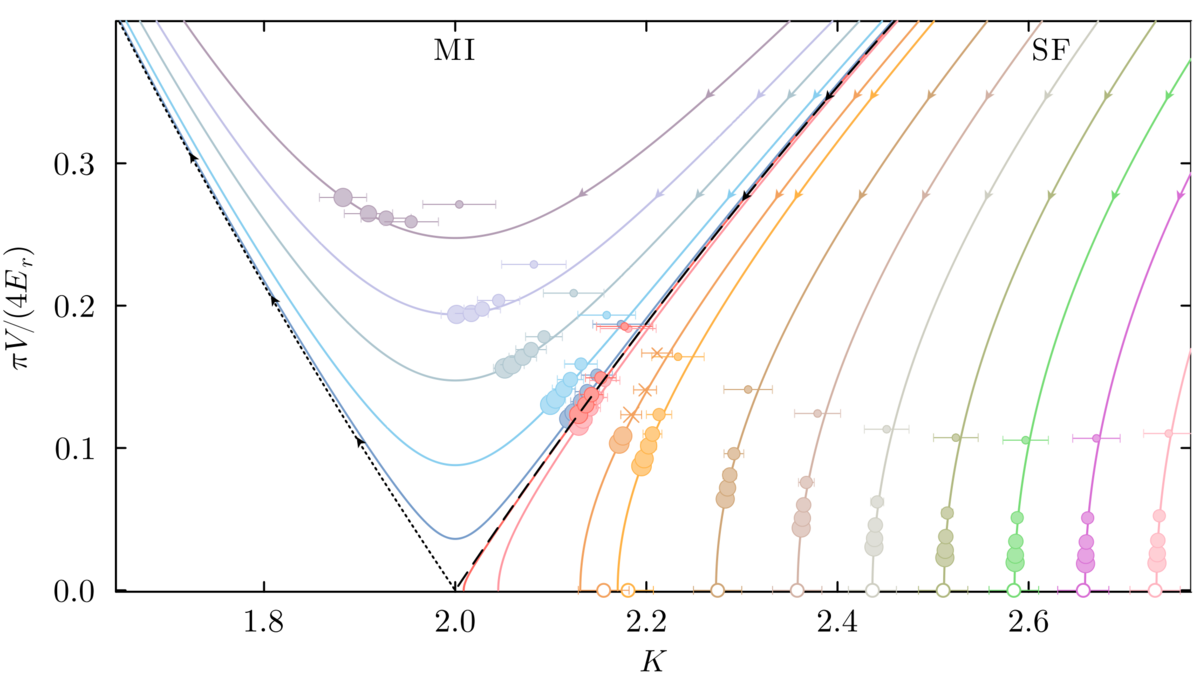One option for specialisation within the master's course of study Physics is the field of theoretical condensed matter. Find out more about the master's track theoretical condensed matter and the recommended modules here.
We predominantly investigate the emergent collective behaviour of large aggregates of particles (or more complex “agents”) by trying to explain how their macroscopic properties arise from the micro-scale physics. The lectures and our ongoing research activities cover a diverse set of physical problems both in quantum and classical regimes, ranging from the understanding of how electrons superconduct electricity or how quantum spin liquids emerge in magnetic materials to how neurons form brains or how micro-swimmers flock. In other words, Theoretical Condensed Matter Physics is the study of why “more is different”, as illustrated, for example by the emergent particle-like excitations with fractional statistics in quantum Hall fluids or the entropy producing motile defects in non-reciprocal active matter systems. To tackle these problems, we employ a variety of mathematical and field theoretic techniques as well as advanced computational tools, and investigate a manifold of “hard” and “soft” many-body systems covering various length and time scales and conditions near and far from equilibrium.
Structure of the Course of Study
The master's course of study Physics is divided into two one-year phases: the expansion and advanced phase and the research phase.
| Modules | ||||
|---|---|---|---|---|
| 1st Sem. | Elective Area 1: Experimental Physics (10 CP) | Elective Area 2: Theoretical Physics (10 CP) | Elective Area 3: 12-PHY-MWPSWM Specialised Topics of Theoretical Physics (5 CP) | Elective Area 4: Physics-Related Electives (35 CP) |
| 2nd Sem. | ||||
| 3rd Sem. | 12-PHY-MFS1 Research Project 1 (15 CP) | 12-PHY-MFS2 Research Project 1 (15 CP) | ||
| 4th Sem. | Master's Thesis (30 CP) | |||
For the elective area 1 (experimental physics), you choose a module from the following compulsory elective modules:
| Sem. | Module No. | Module Title | CP |
|---|---|---|---|
| 1/2 | 12-PHY-MWPE1 | Advanced Solid State Physics | 10 |
| 1/2 | 12-PHY-MWPE2 | Soft Matter Physics | 10 |
| 2 | 12-PHY-MWPASM | Soft Matter and Biological Physics | 10 |
For the elective area 2 (theoretical physics), you choose a module from the following compulsory elective modules:
| Sem. | Module No. | Module Title | CP |
|---|---|---|---|
| 1 | 12-PHY-MWPT1 | Advanced Quantum Mechanics | 10 |
| 2 | 12-PHY-MWPT2 | Advanced Statistical Physics | 10 |
For the elective area 4 (physics-related electives), you choose modules with a total of 35 CP from the following elective modules for the master's course of study. You can also choose modules from elective areas 1 and 2 that you have not yet taken.
Master Modules
| Sem. | Module No. | Module Title | CP |
|---|---|---|---|
| 1/2 | 12-PHY-MWPTKS1 | Stochastic Processes in Physics, Biology and Earth Sciences | 10 |
| 1/2 | 12-PHY-MWPTKS2 | Non-linear Dynamics and Pattern Formation | 10 |
| 1/2 | 12-PHY-MWPTKS3 | Practical Course: Complex Systems | 5 |
| 1/2 | 12-PHY-MWPTKM3 | Theory of Soft and Bio Matter | 10 |
| 1/2 | 12-PHY-MWPTKM4 | Practical Course: Condensed Matter Theory | 5 |
| 1/2 | 12-PHY-MWPCQM1 | Practical Course: Quantum Theory of Condensed Matter | 5 |
| 1/2 | 12-PHY-MWPSTP1 | Quantum Field Theory of Many-Particle Systems | 10 |
| 1/2 | 12-PHY-MWPSTP2 | Statistical Mechanics of Deep Learning | 10 |
| 1/2 | 12-PHY-MWPTKM5 | Practical Course: Quantum Statistical Physics | 5 |
| 1/2 | 12-PHY-MWPXT1 | Group Theory and Its Applications in Physics | 10 |
Working Groups
The following working goups at our faculty are working in the area of theoretical condensed matter:
- Complex Quantum Systems
Prof. Dr. Boris Fine - Nonlinear and Stochastic Dynamics
Prof. Dr. Jürgen Vollmer - Quantum Condensed Matter Theory
Prof. Dr. Inti Sodemann Villadiego - Statistical Physics
Prof. Dr. Bernd Rosenow - Soft Condensed Matter Theory
Prof. Dr. Klaus Kroy

